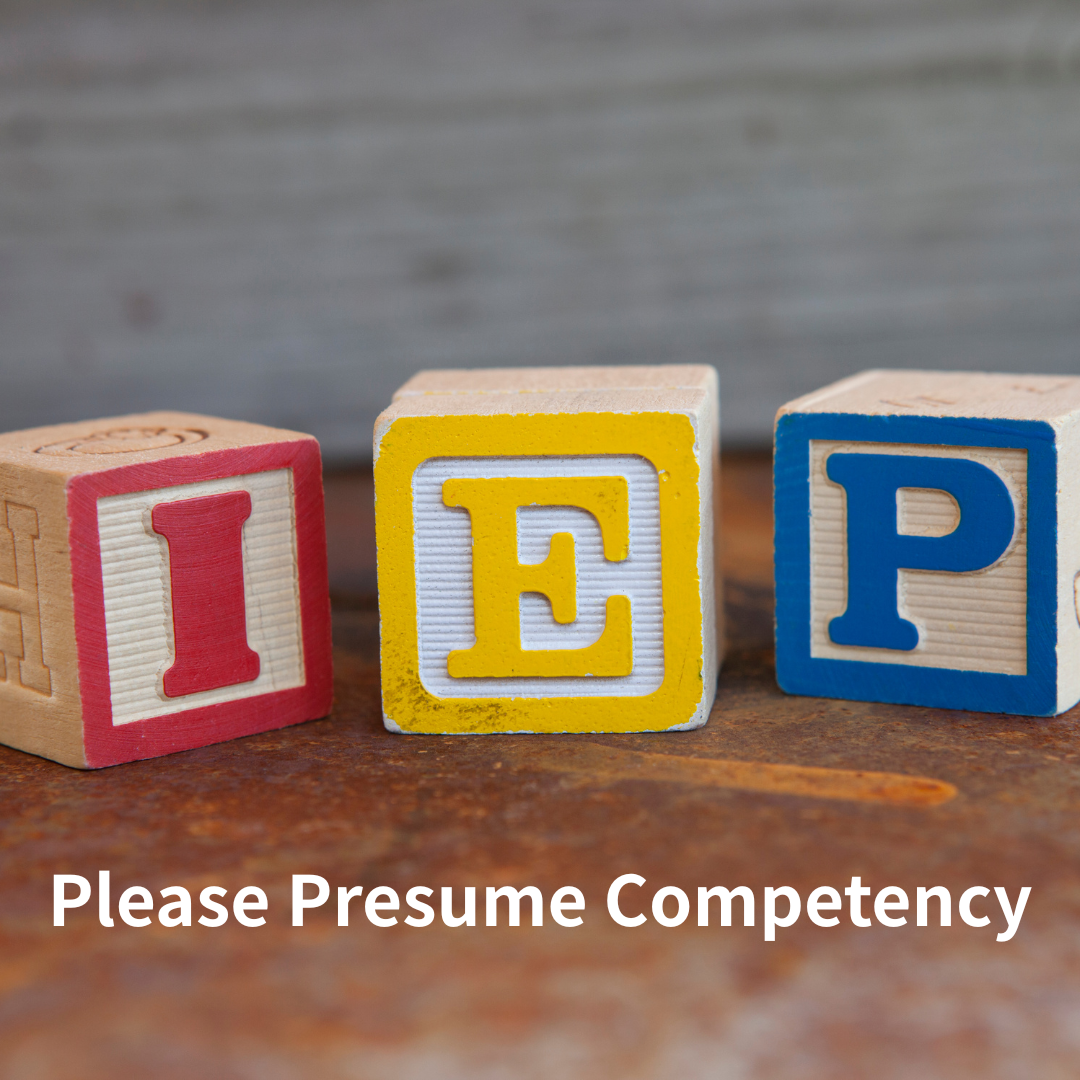5/21/2025
·Enable high contrast reading
Please Presume Competency

We don’t get to decide what children can or cannot achieve as adults. Our job is to give every child—not just those with disabilities—the chance to surpass our limited, adult-shaped expectations. Because here’s the truth: they will, whether we believe in them or not.
When our daughter was in first grade, I sought the help of an educational advocate to support me in drafting her IEP goals. At that point, I had spent eight years as a high school counselor, sitting on the other side of that IEP table. I knew how important it was to start with goals that presumed competence—something I wasn’t seeing in what the school had proposed. And I also knew that, without data, I couldn’t fight for the educational changes she might need later. So I reached out to a former special education teacher who now worked privately with parents for a fee.
I told her about our daughter—a brain cancer survivor—and asked only for a consultation on the IEP goals I had already drafted, trying to be mindful of costs. She listened, then reviewed my goals. And this was her response:
“I would like you to make sure the goals are appropriate based on her medical barriers, which might make them unattainable.”
I was stunned. I hadn’t expected someone advertising themselves as an advocate for children with disabilities to say something so limiting. I thanked her for her time, paid her, and chose not to expend the little energy I had left arguing. I was learning, with time, to preserve that precious energy for my daughter and my family.
Still, that moment left a lasting mark. It was the first time someone so clearly failed to presume my child’s competence. She was only six. And already, people were underestimating her—dismissing her potential without even giving her a chance to try.
That’s when my “Mom gut” kicked in. And then my brain followed with this truth: I don’t care if she doesn’t meet every goal. What matters is that we give her the chance to try. This life—her life—is too precious for imposed limitations. The world already presents architectural barriers for her mobility to move with wheels, and now she has to face this too?
Let me spell it out. When our daughter was diagnosed with brain cancer just after her 2nd birthday, we didn’t say, “Well, this is risky. She probably won’t make it through chemo, radiation to her baby brain, or the radiation necrosis that nearly took her afterward.” No. We assumed survival. We moved forward with everything we had to keep her alive.
And that’s the same spirit we bring to her education. Sure, schools aren’t obligated to go all-in like a parent does but a parent will leverage every ounce of strength, every resource, every connection—for the best possible future for their child. Her quality of life depends on her education and we cannot, must not, assume she can’t. She has already lived through more than most adults will ever face. Trust me: she deserves the chance to show you what she’s capable of. And such is true for ALL kids.
My greatest dream is that she outlives me. And if that dream comes true, I want to know I did everything in my power to equip her for that future—to foster her independence, her learning, her joy.
A parent’s love for their child? It’s relentless. It’s fierce. It doesn’t underestimate.
Neither should the rest of the world.





